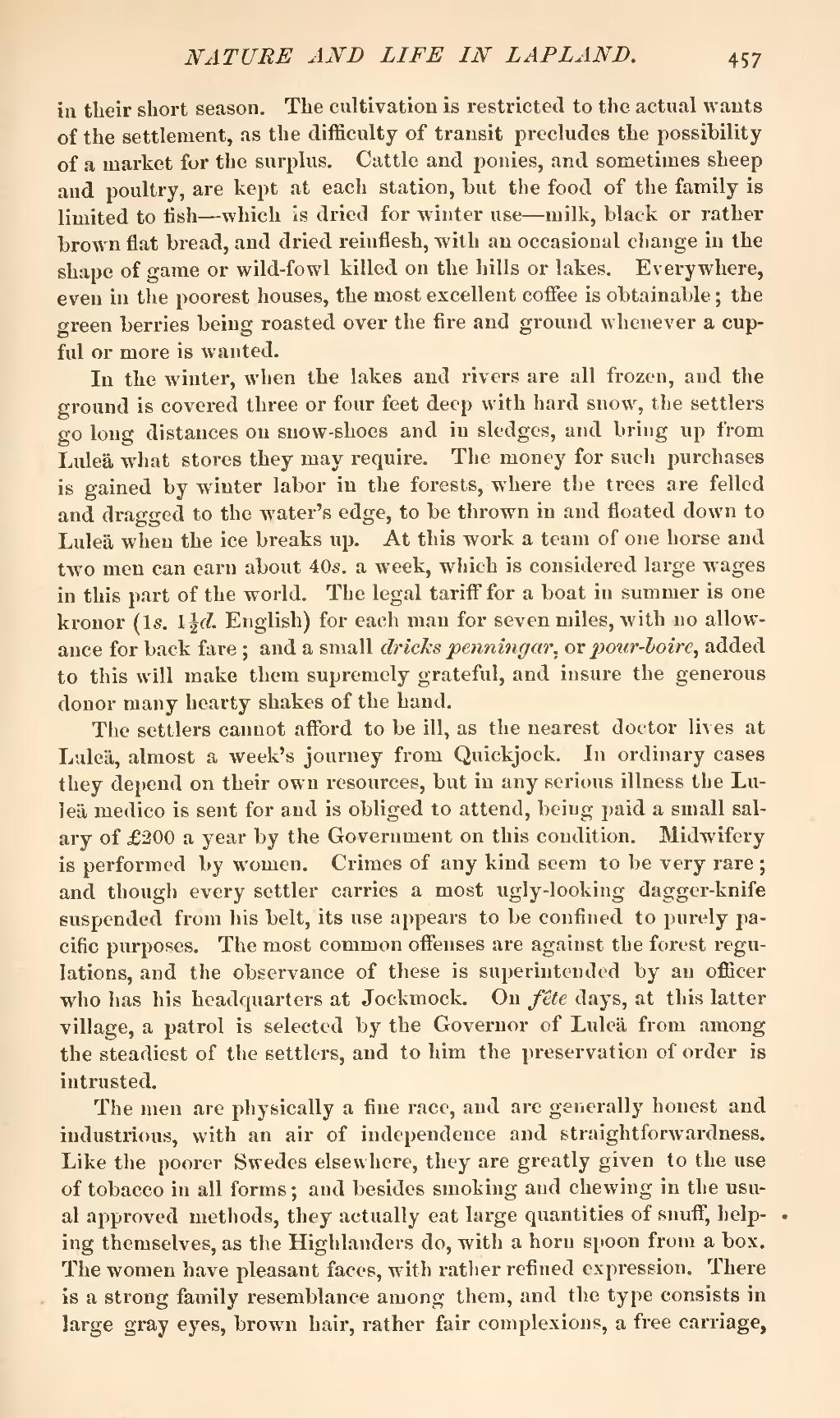in their short season. The cultivation is restricted to the actual wants of the settlement, as the difficulty of transit precludes the possibility of a market for the surplus. Cattle and ponies, and sometimes sheep and poultry, are kept at each station, but the food of the family is limited to fish—which is dried for winter use—milk, black or rather brown fiat bread, and dried reinflesh, with an occasional change in the shape of game or wild-fowl killed on the hills or lakes. Everywhere, even in the poorest houses, the most excellent coffee is obtainable; the green berries being roasted over the fire and ground whenever a cupful or more is wanted.
In the winter, when the lakes and rivers are all frozen, and the ground is covered three or four feet deep with hard snow, the settlers go long distances on snow-shoes and in sledges, and bring up from Luleä what stores they may require. The money for such purchases is gained by winter labor in the forests, where the trees are felled and dragged to the water's edge, to be thrown in and floated down to Luleä when the ice breaks up. At this work a team of one horse and two men can earn about 40s. a week, which is considered large wages in this part of the world. The legal tariff for a boat in summer is one kronor (1s. 112d. English) for each man for seven miles, with no allowance for back fare; and a small dricks penningar, or pour-boire, added to this will make them supremely grateful, and insure the generous donor many hearty shakes of the hand.
The settlers cannot afford to be ill, as the nearest doctor lives at Luleä, almost a week's journey from Quickjock. In ordinary cases they depend on their own resources, but in any serious illness the Luleä medico is sent for and is obliged to attend, being paid a small salary of £200 a year by the Government on this condition. Midwifery is performed by women. Crimes of any kind seem to be very rare; and though every settler carries a most ugly-looking dagger-knife suspended from his belt, its use appears to be confined to purely pacific purposes. The most common offenses are against the forest regulations, and the observance of these is superintended by an officer who has his headquarters at Jockmock. On fête days, at this latter village, a patrol is selected by the Governor of Luleä from among the steadiest of the settlers, and to him the preservation of order is intrusted.
The men are physically a fine race, and are generally honest and industrious, with an air of independence and straightforwardness. Like the poorer Swedes elsewhere, they are greatly given to the use of tobacco in all forms; and besides smoking and chewing in the usual approved methods, they actually eat large quantities of snuff, helping themselves, as the Highlanders do, with a horn spoon from a box. The women have pleasant faces, with rather refined expression. There is a strong family resemblance among them, and the type consists in large gray eyes, brown hair, rather fair complexions, a free carriage,
